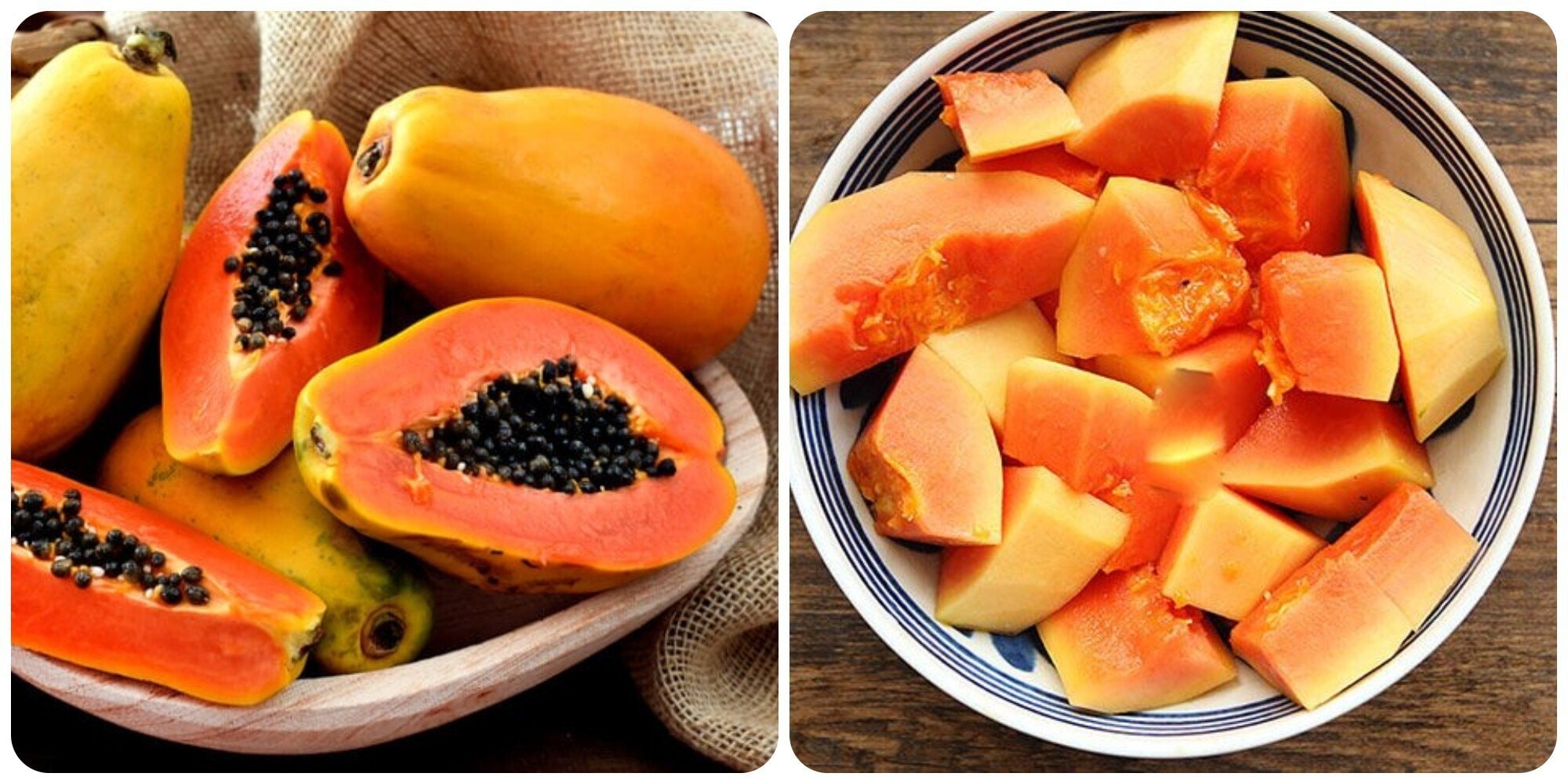People who should limit eating ripe papaya
Papaya is a fruit that many people love but not everyone can eat it. Below are people who should limit eating ripe papaya.
People who should not eat papaya
Papaya is a popular fruit in Vietnam. Papaya is delicious, nutritious and cheap, so it is loved by many people. However, not everyone can eat this fruit. Health & Life Newspaper quoted Bold Sky as pointing out that people who should not eat papaya are as follows:
People with hypothyroidism
Cyanogenic glycosides in papaya not only affect heart rate but can also interfere with iodine synthesis and metabolism in the body and cause worsening symptoms in people with hypothyroidism. However, this only occurs in people who eat too much papaya.
People with allergies
People with respiratory disorders such as asthma, or any allergies, should be careful when eating papaya. Sometimes pollen can stick to the papaya skin, so wear gloves when peeling papaya. Throw the peel and gloves in the trash immediately after peeling.
Papaya allergy often has the following symptoms: swelling of the mouth, itching around the face and throat, rash on the tongue, dizziness, headache, abdominal pain, difficulty breathing and difficulty swallowing.
People with irregular heartbeats
People with irregular heartbeats may experience an increase in their condition if they eat papaya. One study found that papaya contains low levels of cyanogenic glycosides, an amino acid that can produce hydrogen cyanide in the human digestive system. Although small amounts of this compound are unlikely to cause harm to people with heart disease, eating too much can be harmful.
People with kidney stones
Papaya is rich in vitamin C, 100g of papaya contains 60.9mg of vitamin C. This is an antioxidant and plays an important role in maintaining a strong immune system. However, too much vitamin C can lead to the formation of calcium oxalate kidney stones or worsen symptoms in people who already have the disease.
People with poor digestion
Papaya is an excellent laxative and a rich source of fiber, which is great for digestive health. However, eating too much of it can have an adverse effect on the stomach. Instead of treating stomach problems like constipation and indigestion, it can lead to diarrhea and bloating.
People with hypoglycemia
People with hypoglycemia or low blood sugar should avoid eating papaya. Eating too much can lead to symptoms such as shaking and rapid heartbeat.

Things to note when eating ripe papaya
The article on the Medlatec Hospital website has medical consultation with Dr. Dinh Van Chinh to avoid the harmful effects of ripe papaya and enjoy nutritious dishes from this fruit with peace of mind, you can take some preventive measures such as:
Control consumption
To avoid overconsumption of ripe papaya, you should control the amount of this fruit in your daily diet and should not eat too much at one time.
Choose fresh ripe papaya
Choose fresh, ripe papaya with shiny skin to eat. Do not use processed products containing ripe papaya with added sugar or preservatives because these factors have negative effects on health.
Pay attention to food hygiene issues
Before eating ripe papaya, always wash it thoroughly under running water to remove dirt and chemicals that may remain on the surface of the skin.
Combine with other foods
Ripe papaya should be eaten as a dessert and before that, you should choose easily digestible foods such as vegetables, porridge, etc. to reduce stress on the stomach.
Monitor your body's response
Carefully monitor your body's reactions after eating ripe papaya. If you have any signs of an allergic reaction such as a rash, itching or difficulty breathing, seek medical attention immediately.
